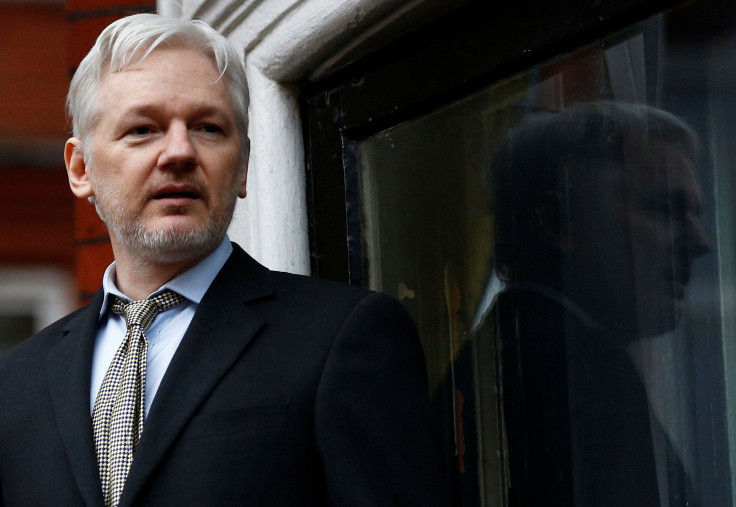WikiLeaks Founder Julian Assange To Be Questioned By Sweden At Ecuador's London Embassy

WikiLeaks founder Julian Assange will be questioned by the Swedish government inside the Ecuadorean embassy in London, a statement issued late Wednesday stated. The 44-year-old is wanted for questioning in Sweden over rape allegations stemming from a 2010 incident.
Assange has been living in the Ecuador Embassy in London since June 19, 2012, to avoid extradition under a European arrest warrant. The statute of limitations in the case expires in 2020.
“In the coming weeks a date will be established for the proceedings to be held at the embassy of Ecuador in the United Kingdom," the statement read. “For more than four years, the government of Ecuador has offered to cooperate in facilitating the questioning of Julian Assange in the Ecuadorian embassy in London, as well as proposing other political and legal measures, in order to reach a satisfactory solution for all parties involved in the legal case against Julian Assange, to end the unnecessary delays in the process and to ensure full and effective legal protection."
The statement also said: “In line with this position, Ecuador proposed to Sweden the negotiation of an agreement on mutual legal assistance in criminal matters, which was signed last December and which provides the legal framework for the questioning.”
If Assange were to be taken into custody in Sweden, he fears he eventually could be extradited from there to the U.S. over the public release of 500,000 secret government files that were part of a massive release by WikiLeaks. Many world leaders had faced embarrassment following the release of the documents that contained candid assessments of foreign leaders by diplomats and a great deal about government decisions.
“Ecuador’s Foreign Ministry reiterates its commitment to the asylum granted to Julian Assange in August 2012, and reaffirms that the protection afforded by the Ecuadorian state shall continue while the circumstances persist that led to the granting of asylum, namely fears of political persecution,” the statement issued Wednesday added.
© Copyright IBTimes 2025. All rights reserved.





















